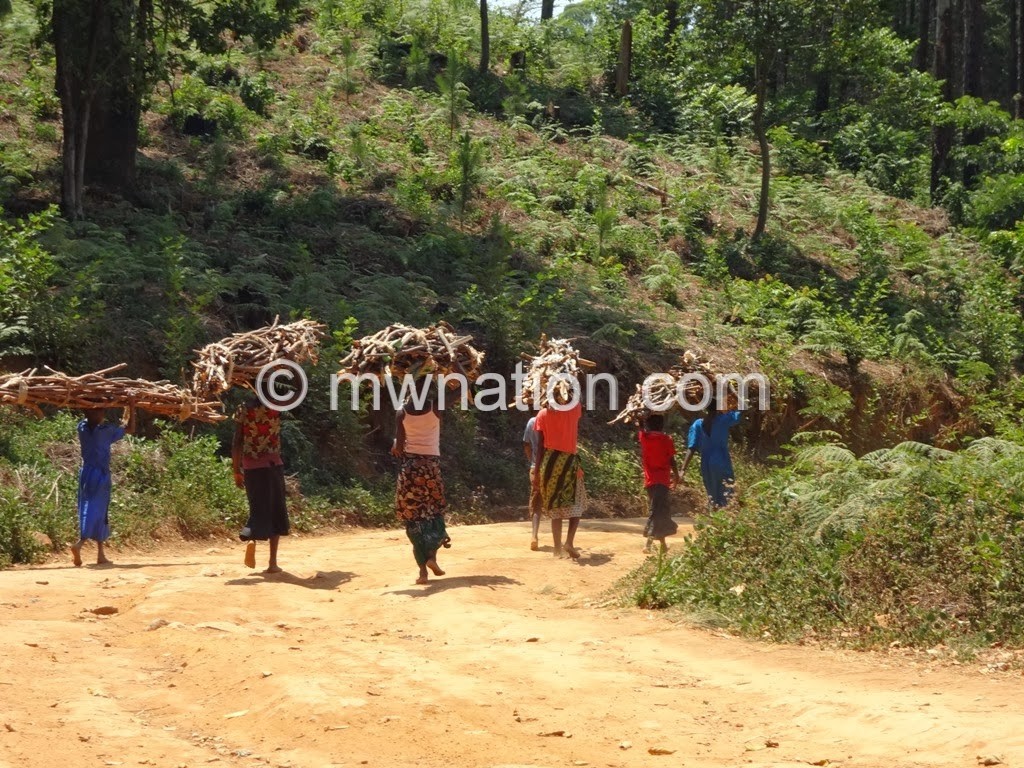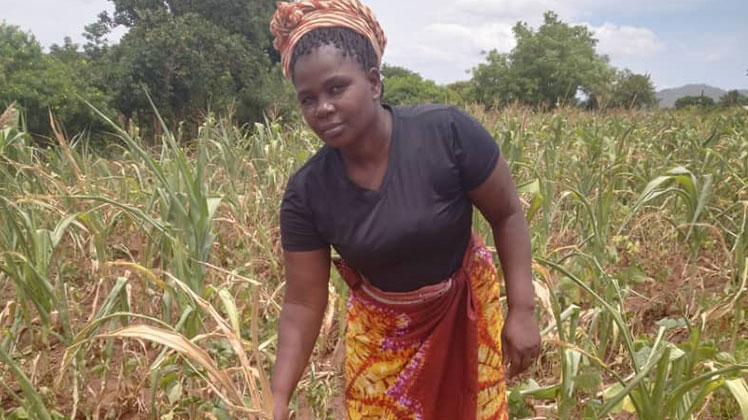Energy poverty slows progress
Patricia Mussa of Kambalame Village in Machinga District endures long walks in search of firewood.
She climbs Chikala Hills with her three girls during weekends to meet the cooking needs of her family of seven.

They leave home around 2am only to return around 4 pm with bulky bundles on their heads.
“The walks keep lengthening as trees disappear fast. We now spend seven hours to pick enough firewood,” she says.
In the neighbouring Zomba District, Cecelia Kamandani of Chilunga Village and her two daughters make similarly tiring trips to Zomba Mountain.
“As trees become scarce, we seldom get enough even after spending eight hours in the mountain. These are hours we can use to manage our homes and do income generating activities,” she says.
The firewood hunters return home tired around 11:30am, forcing children not to go to school or get to class too late and too tired to learn.
“Some girls quit school fuelling teen pregnancies and child marriages,” Kamandani says.
Women and girls bear the brunt of energy poverty as forests vanish faster than they are being replenished.
Without access to affordable clean and sustainable cooking energy, more than 90 percent of households in Malawi cook using firewood and charcoal.
The 2018 census indicates that almost 80 percent of the country’s population use firewood while 10 percent depends on charcoal with no end in sight.
“With alternative fuel sources underdeveloped, firewood and charcoal will continue to form a significant part of Malawi’s energy mix for the next few decades,” reads the national strategy to combat charcoal.
Low access and unreliable grid power has increased the appetite for firewood and charcoal.
The census shows just about 12 percent of Malawians are connected to grid electrification and only 1.2 percent of them use electricity for cooking. Access drops to as low as five percent in rural areas, where four in five Malawians live.
The high demand for fuelwood and lax enforcement of forest protection laws has wiped out trees, worsening environmental degradation, hunger and poverty.
Environmental degradation has made Malawians vulnerable to effects of climate change, according to the Food and Agriculture Organisation of the United Nations (UN).
Like many Malawians, Mussa is grappling with perennial hunger as crop yields keep dwindling partly due to climate shocks such as floods, prolonged dry spells and drought.
“The loss of trees affects food production as it increases run-offs that wash away fertile soils and crops. As a result, we harvest too little to take us to the next harvesting season,” she explains.
Zomba and Machinga are ranked among the worst hit districts by devastating cyclones that have battered southern Malawi in the past half-decade. These include Idai in 2019, Ana and Gombe in 2020 and Freddy in March this year.
Kamandani’s house was ripped by the cyclones.
“Apart from the lengthening walks to fetch firewood and falling harvests, I struggle to rebuild and recover from the frequent disasters,” she states.
Cooking in open fireplaces also expose women and children to deadly fumes from burning fuelwood.
The smoky cooking routines fuel indoor air pollution that kills about 1.3 billion people a year, according to WHO.
It claims about 13 000 lives in Malawi per year, according to the Ministry of Health.
Government and its partners are turning to simple and sustainable energy technologies to safeguard the environment and human health.
“It is alright to use dead wood or harvest trees, but overreliance on fuelwood due to the unmet need for energy and limited alternatives put our forests on fire unless we replant the trees as fast as we are felling them,” says Renew’N’able Malawi (Renama) project officer Kenneth Mtago.
Renama popularises green and inclusive energy, including briquettes and energy-efficient cookstoves known as Chitetezo Mbaula that emit less smoke and halve the amount of firewood needed for cooking.
“Simple solutions like these reduce the pressure on forests while allowing the hills to become green again,” says Mtago.
Mtago says the handmade cookstove saves up to 30 percent of household energy spending.
“With two or three sticks or crop residues, I cook meals on the stove. Open fires consume more firewood,” says Ruth Makwakwa, lighting a Chitetezo Mbaula.
Besides, some communities have intensified tree planting and kept hands off stumpy forests to restore degraded landscapes and build their resilience to climate-related disasters.n





